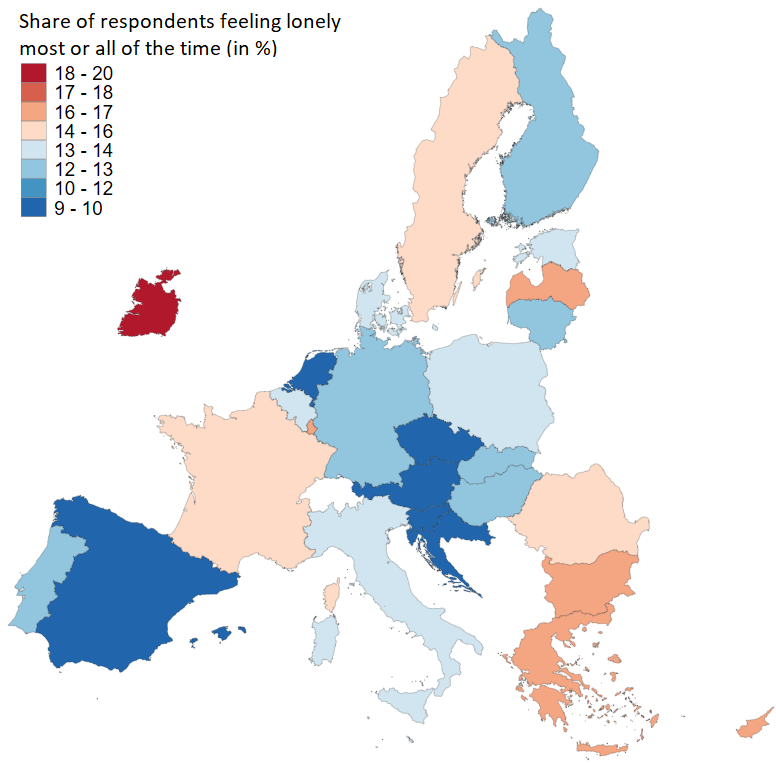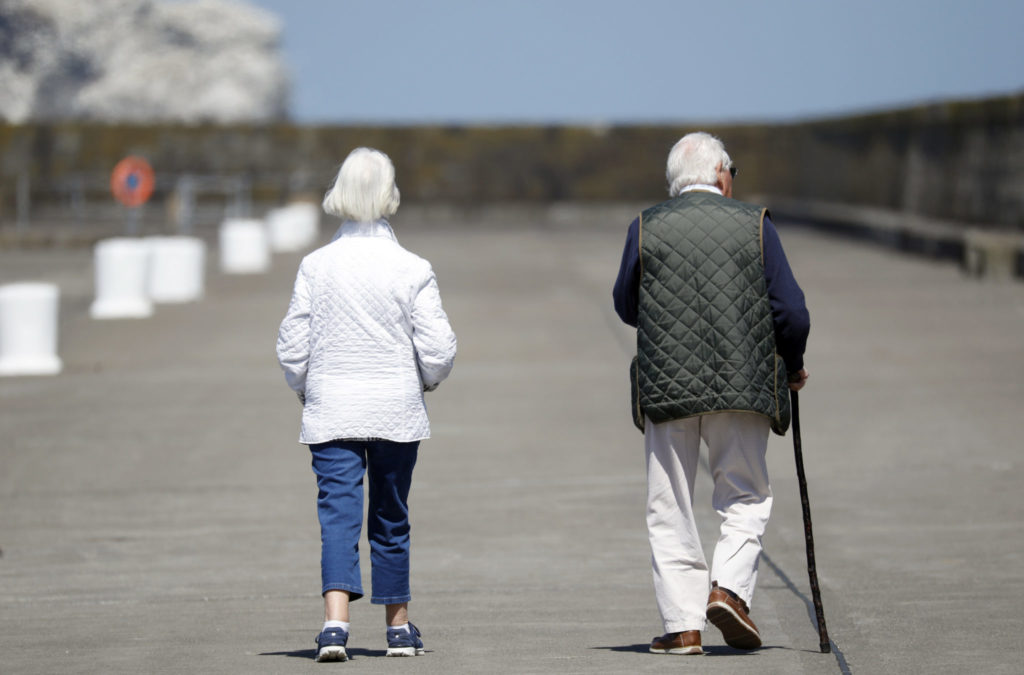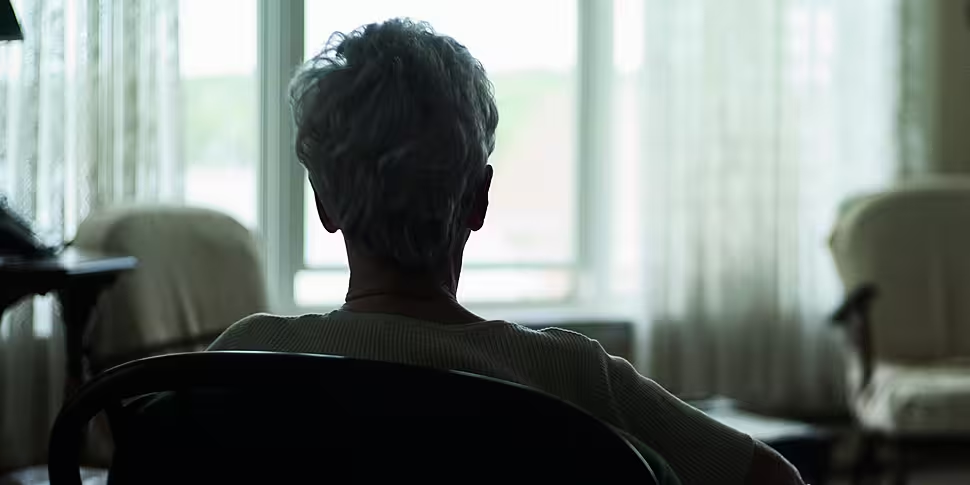Combatting loneliness needs as much commitment as any other health issue in Ireland, one Lunchtime Live caller has said.
A recent EU survey found loneliness was most prevalent in Ireland, with over 20% of respondents reporting feeling lonely.
Luxemburg, Bulgaria and Greece followed Ireland from the top spot.
The lowest levels of loneliness were seen in the Netherlands, Czech Republic, Croatia and Austria.
 Source: European Commission
Source: European CommissionPeople experiencing major life events such as separation, job loss or finishing their studies are more often lonely.
Loneliness affects all age groups.
Denise works with 'Good Morning Kildare', a free phone service that supports social connections in Kildare and surrounding counties.
"We kind of make about 250 calls a week, and some of those calls would be made to the same person maybe three times a week," she said.
"The service was a lifeline for service users, especially during COVID.
"During the time we talk to them, the year goes on, we send our Christmas cards to them, we send out birthday cards to them.
"They're always there, they're always remembered."
'You can be in a crowd and be alone'
Denise said a lot of the people who use the service live alone.
"Some of them luckily enough have their family, and they come down and they have their kids and their grandkids and friends," she said.
"You can be in a crowd and be alone as well, so being alone means both.
"You can be very alone in your home and you can be very alone being with your family; it depends what you're going through.
"Just having someone outside of that circle to talk to can be very helpful."
Denise said loneliness should be treated like any other health issue.
"I think people can be very lonely, and it's very hard on them when they are alone," she said.
"I think it needs as much commitment as any other thing in this country," she added.
 Elderly people walking on the pier at Howth in Dublin. Image: Leon Farrell/RollingNews.ie
Elderly people walking on the pier at Howth in Dublin. Image: Leon Farrell/RollingNews.ieMark, who set up the Dudes and Dogs group to help combat loneliness among men, said their numbers have dropped since lockdown ended.
"Men in general are traditionally difficult to target," he said.
"If it's outside of sports or the pub, it can be a very difficult catchment group.
"You don't even need to have a dog; the whole idea is that you just have to want to connect with people."
'Men have trouble reaching out'
Mark said while he welcomes that Ireland has a men's health policy, the initial step can be difficult.
"Men have trouble reaching out, and I think if you're tailoring programmes in a way that will encourage men to come into the fold - the main way you do that is you listen to them," he said.
"Something like a dog is great because it's a catch-all; but when you go into highly-specialised areas, it can be more and more difficult.
"If you're not involved in the GAA, if you're not involved in schools, if you don't have kids, and you're a man in your mid to late-30s or early 40s, life in Ireland can be a very lonely place."
'Connecting with people'
Rose lives alone and said while support services are really helpful, it is important to find something in common.
"Alone and all that are very good, but for me I find you to connect with people that you have something in common with," she said.
"You go to Alone outings and you come back and you still have to go back to the house on your own.
"I would suggest that if there was a phone line, and people gave their number... to the people that are alone.... and then they can get in touch.
"You could find out who's living in your area that would be on their own," she added.
Advice to help combat loneliness can be found here









